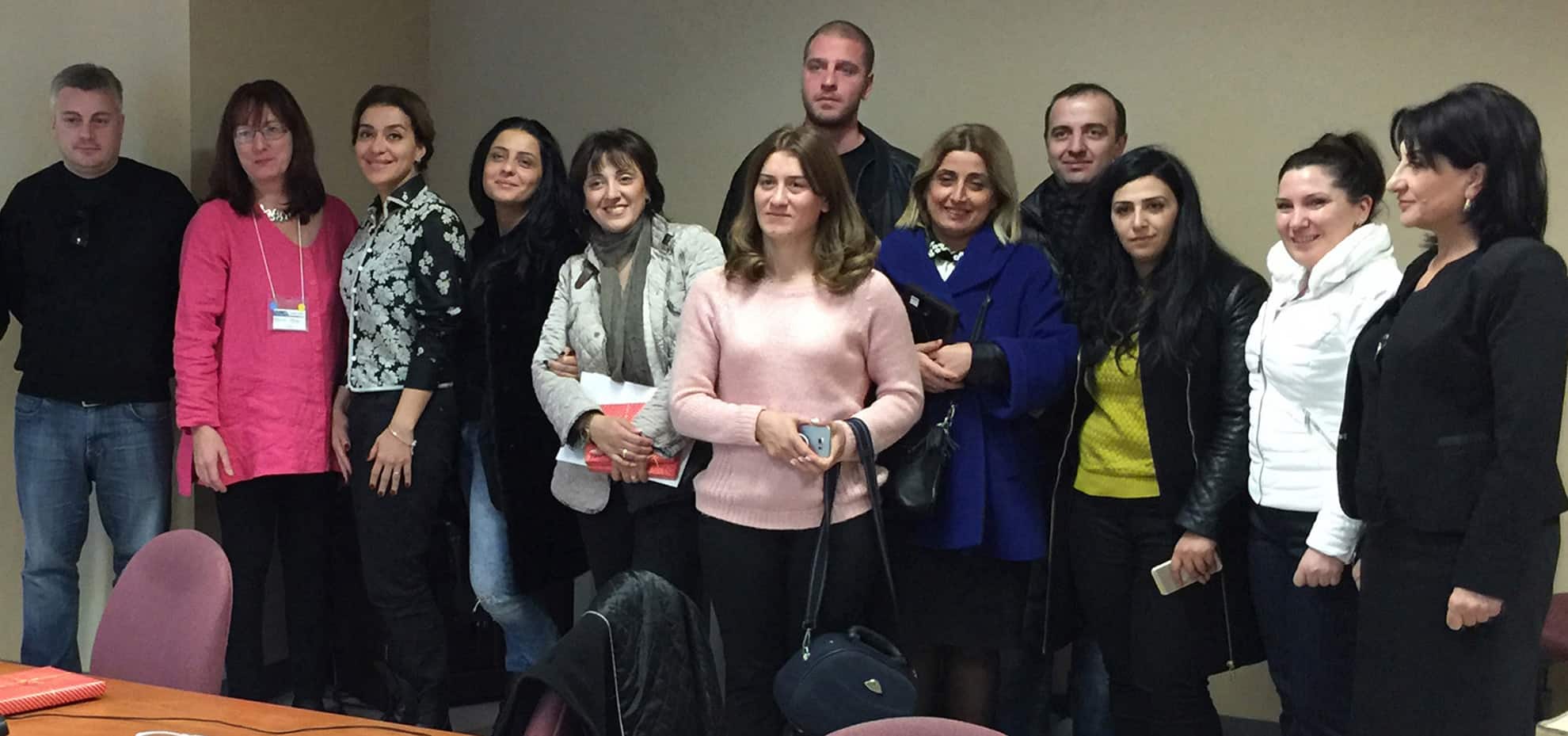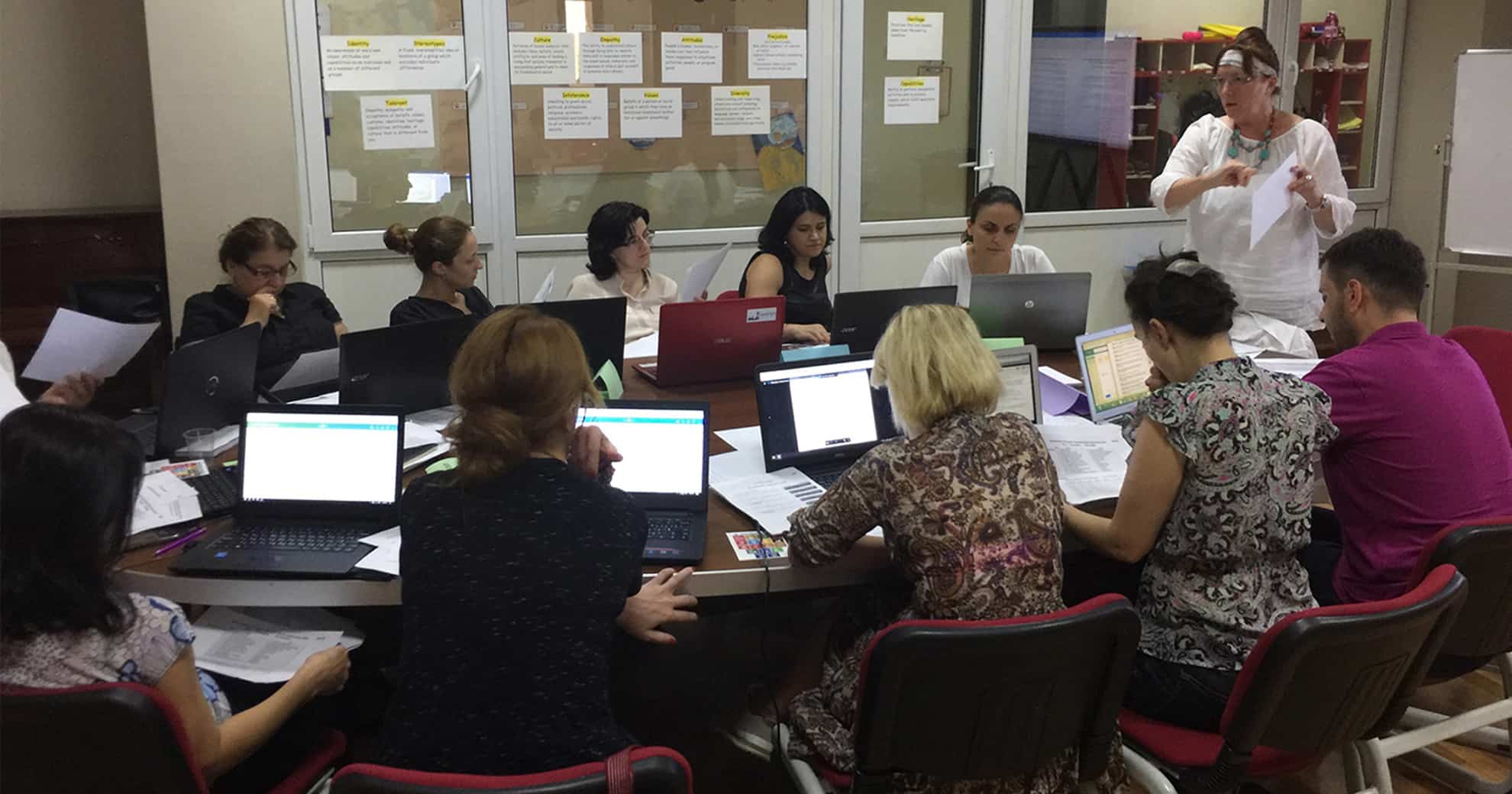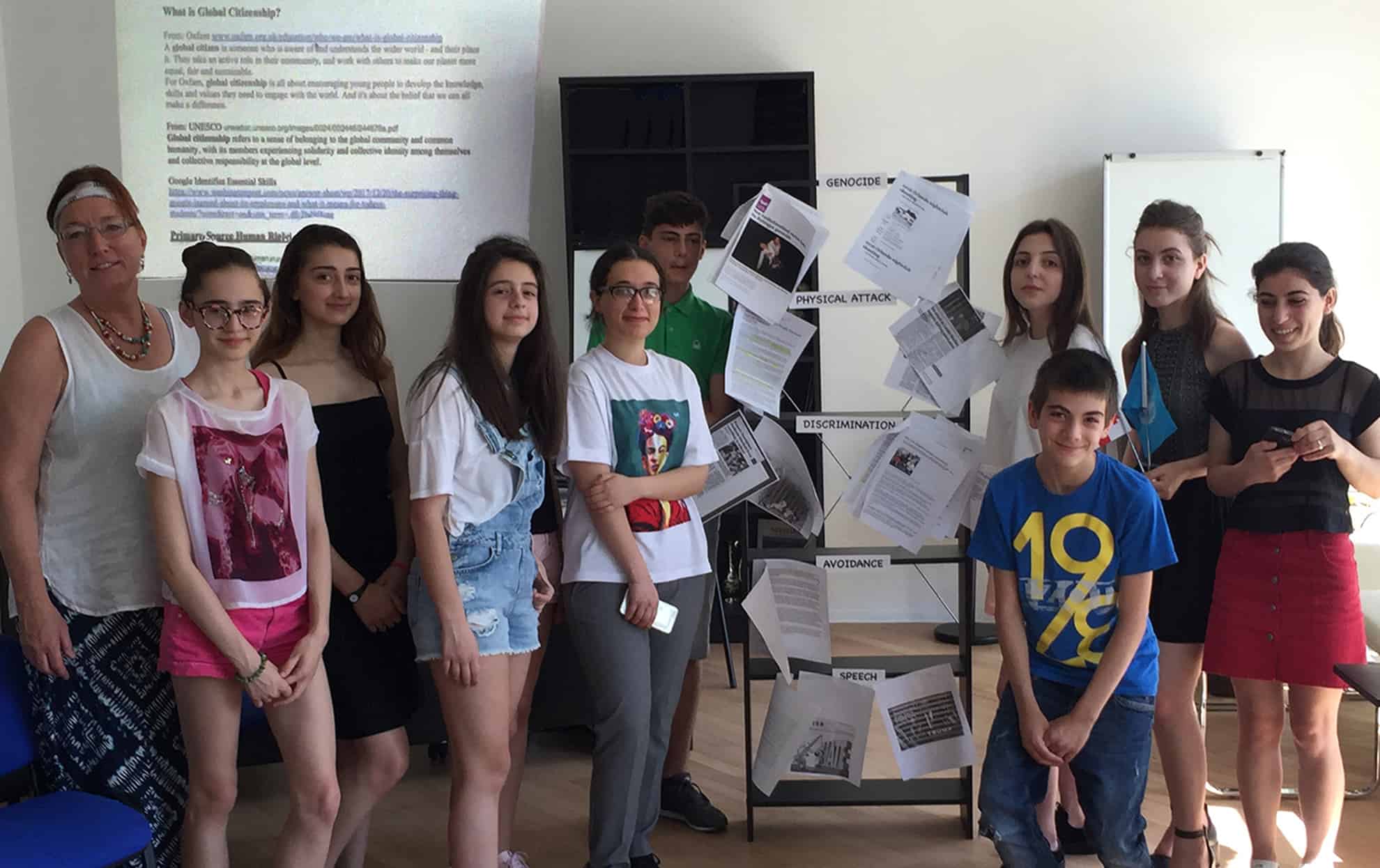BACKGROUND
The Republic of Georgia is a relatively young democracy, there is heightened awareness of the need to nurture young people in the skills they will need to be empowered, informed citizens. School districts are encouraged, and supported, to include principles of Democracy, Human Rights, and Global Citizenship at all grade levels.
The current global geo-political situation affecting countries that border Russia highlights the sense of urgency that drives many educators in Georgia. In 2008 the Russian military occupied two of the eastern Georgian provinces, South Ossetia and Abhkazia, both of which remain under Russian control.
INTRODUCING PRINCIPLES OF HUMAN RIGHTS AND THE SDGs
In November, 2016, representatives from the Tbilisi City Council and Educational Administrators plus a group of Georgian high school students traveled to Chestnut Hill College, located in Philadelphia, to attend a professional development training program focusing on early childhood education. The government of the Republic of Georgia had recently doubled the budget for elementary and pre-school education, and the administrators were interested in learning about American approaches to early childhood education. As part of the conference, Words Into Deeds organized workshops that introduced key Human Rights documents followed by discussions designed to help students design and implement community outreach projects in their schools.

Georgian high school students learning about the ways in which the UN Sustainable Development Goals provide opportunities for them to become involved in their communities.

Georgian elementary school teachers participating in workshops designed to help them introduce Human Rights concepts and projects in their classrooms.
2-DAY WORKSHOPS FOR TEACHERS AND STUDENTS IN TBLISI
The following June I was invited to present separate Words Into Deeds workshops for teachers and high school students in the capital city, Tbilisi. 13 teachers and school administrators and 22 students participated in these highly interactive sessions, which were sponsored by a Georgian NPO, Multinational Georgia for Strengthening Democratic Values.
Teachers’ workshops began with development of essential questions related to identifying the skills that they believed most important to for their students learn in order to become informed, effective, empowered citizens. This was followed by the introduction to and discussion of key documents: the Universal Declaration of Human Rights and the Georgian Constitution, comparing the guarantees in each. Strategies for introducing these into different discipline-based classrooms were developed.
Linking these ideological concepts to specific actionable targets was done by examination of the Sustainable Development Goals, exploring the inter-connectedness among them and the many relevant educational resources available on line. These sessions included pedagogical practices, classroom activities that bring together students and issue-specific experts, ways to promote interdisciplinary teams, and assessment strategies. Applications suitable for students ranging from kindergarten through high school were identified.

Workshop on using “wall words” to develop students’ language skills around social justice and human rights issues.
The second day began with proactive approaches to addressing prejudices and promoting respect, using the metaphor of a Ladder of Prejudice. The teachers then began designing a Words Into Deeds project suitable for their classrooms. As is usual for this first experience at project design, I pick a topic that reflects an issue especially relevant to their community but, especially with workshops in foreign countries, avoids issues that might be politically risky. For the Georgians I proposed understanding and protecting the rights of people living with disabilities. This included defining objectives, examining primary source documents and resources, and outlining strategies to help students design then implement outreach projects, always returning to the essential questions and key documents. By the end of the session several possible projects had been identified, but teachers were reminded that the final selections must be made by the students, who would be charged with designing and implementing the project.
Students’ workshops followed a similar agenda, with the first day introducing principles and practices related to the UDHR and SDGs, often using game-type exercises. In modeling projects, greater emphasis was placed on practical applications and skills needed to understand the many challenges, both physical and emotional, faced by persons with special needs. This also included explorations of biases and prejudices, using the Ladder of Prejudice as a framework.

Students learning about the guarantees provided in the Universal Declaration of Human Rights.
The second day included presentations on human reproduction and development as related to way to identify and avoid practices and situations that might be harmful especially during prenatal and infant stages. The workshop concluded with students suggesting informed outreach actions they might take to improve the lives of these individuals and groups.

Students after a workshop based on The Ladder of Prejudice: From Name Calling to Genocide.
At the conclusion of the teachers’ and students’ workshops, each participant was awarded a Certificate of Achievement accompanied by a celebration.

Teachers holding diplomas for having “completed training to educate and empower youth to become informed, active Global Citizens who are dedicated to improving the lives of others in their community and globally.”
